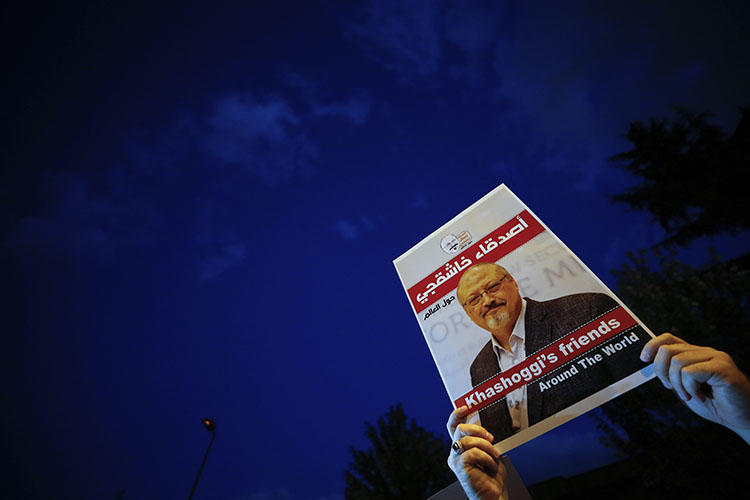New York, September 30, 2019—The Committee to Protect Journalists today reiterated its demand to the U.S. and U.N. for transparency and justice for Washington Post columnist Jamal Khashoggi and said that it was dismayed by the lack of accountability in the journalist’s murder.
Khashoggi, a U.S. resident, was killed in the Saudi consulate in Istanbul, Turkey, on October 2, 2018. A CIA report concluded that Crown Prince Mohammed bin Salman ordered the journalist’s murder, according to The Washington Post. The Crown Prince has denied the allegations, including in a September 29 interview on CBS’s “60 Minutes.”
“It is shocking that one year has passed without justice for Washington Post columnist Jamal Khashoggi. Saudi Arabia must not be allowed to cover up this murder and go about business as usual, detaining and harassing its critics,” said CPJ Executive Director Joel Simon. “The U.S. must make public what the intelligence community knew about threats to Khashoggi and who it has determined is responsible for his murder. The public deserves to know the truth, and governments around the world must know that depraved acts of violence will not go unpunished.”
In the past year, CPJ has urged the U.S. government and the U.N. to pursue transparency and justice for Khashoggi. On September 26, CPJ filed a brief in the U.S. District Court for the District of Columbia seeking to force the administration of President Donald Trump to disclose documents about any threats to Khashoggi that the intelligence community knew of before his murder—and what, if any, warning he was given.
On October 2, CPJ and press freedom partners will mark the anniversary of Khashoggi’s murder with a vigil outside the Embassy of the Kingdom of Saudi Arabia in Washington, D.C. The event is free and open to the public.
CPJ has previously reported on the possible paths to justice in Khashoggi’s case and how the Saudis may have spied on the journalist. Saudi Arabia is the fourth most censored country in the world, a report by CPJ last month found. Authorities there retain a tight grip on the flow of news and information, and detain critical journalists. At least 16 journalists were behind bars for their work at the time of CPJ’s 2018 prison census, and at least nine others, including a Saudi-U.S. citizen, were arrested this year.
